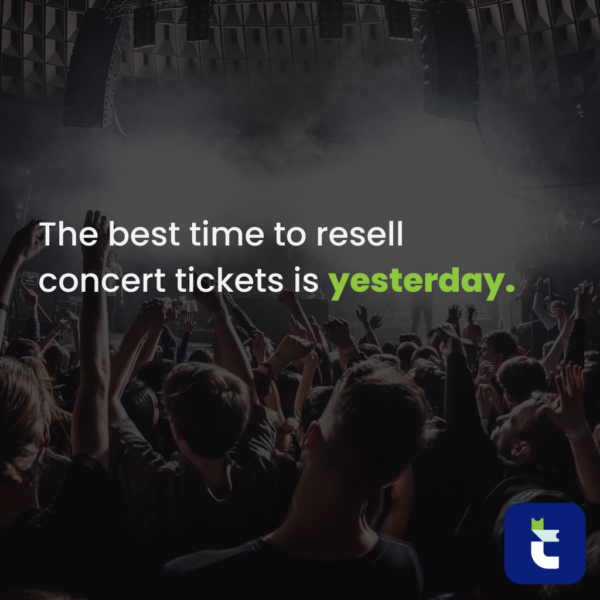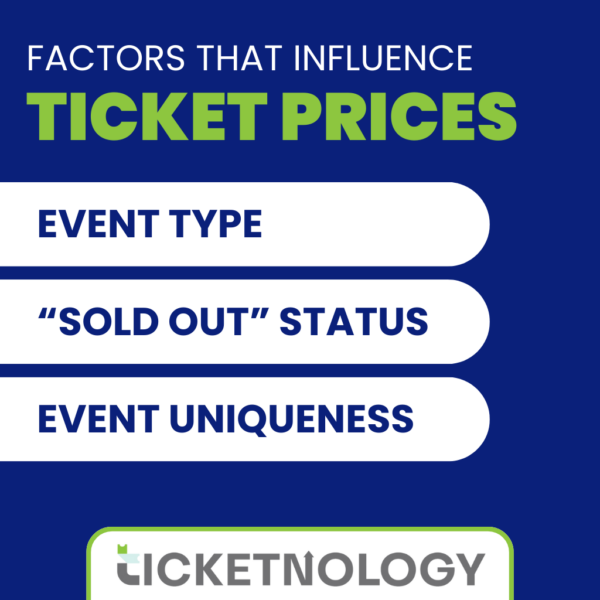Because ticket prices fluctuate, you need to understand all the influencing factors. This knowledge can assist you when making price modifications based on where you are or which audiences are most likely to buy.
Event Type
First, consider the type of event. Advertising tickets to sporting events differs from advertising tickets for a concert. Demand for sporting tickets hinges on winning records, specific players or athletes, postseason popularity, and other regional competitions.
Even when resellers hold out in hopes of getting more money back on ticket purchases, it’s tricky to predict whether a team’s performance will improve or whether they’ll secure a playoff spot. The sooner you list, the better your chances are to resell.
‘Sold Out’ Status
Sometimes, potential buyers erroneously believe event tickets are “sold out.” While it’s true that events do actually “sell out,” this term just means that the original tickets released for sale are gone. There are very few instances where there are no tickets available at all — because the possibility for resales always exists.
When people say they want to attend a “sold out” show, resellers might think they can capitalize on that demand and make back triple their original investment. In reality, thousands of tickets can be available on resale sites. Here, the probability of getting back what you paid is much lower.
When there’s buzz, the best time to resell concert tickets is close to the initial release. This ensures that the resale market isn’t saturated with unwanted tickets.
Event Uniqueness
An event’s uniqueness also determines its resale potential. For example, is the event a 30-date tour or an exclusive one-night-only showstopper?
One-time events usually have higher public demand, particularly for artists who haven’t been on tour recently or who’ve never visited a particular city. As demand rises, ticket prices also change. The more unique an event is, the more money you can make off your original ticket package.



